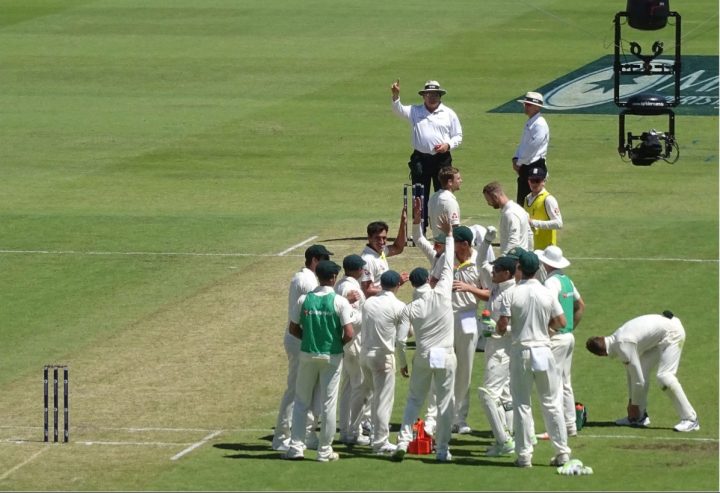Every time England suffer a calamitous batting performance, they respond by dropping a bowler.
It’s almost an instinctive reaction, to blame any defeat on the foot soldiers. Perhaps it’s a last vestige of the old ‘upstairs downstairs’ attitude of separating the officer class (the batsmen) from the cannon-fodder (the leather chuckers).
Everyone seems to agree that Finn is knackered and must be rested for the MCG. Thanks to everyone who’s contributed to our lively discussion over his replacement.
But with so much talk from all quarters about England’s bowling worries, let’s get things in perspective. At Perth, on a good batting pitch, we bowled Australia out for 268 and 309. Swann, now seen as ineffective in the match, prised out Hussey, of all people, when well-set.
Our batting was in a different universe. Yes, you need twenty wickets to win a test match – but also, to win, you have to score more runs than the opposition.
Where do we start? Jonathan Trott, writing in Telegraph, makes the fair point that luck played some part. Every time an England batsmen made a minor mistake at Perth, he was out – while Mike Hussey played and missed “twenty times”.
Geoffrey Boycott’s analysis – that England are temperamentally and technically incapable of withstanding a pitch with bounce – will ultimately, however, gain more traction.
Watching from ten thousand miles away, we’re (understandably) obsessed with mood and momentum. Look into your heart and you will know, or at least think you know, that England are now in big trouble. Our batsmen are running scared, and all the positivity generated up to the moment Mitchell Johnson began that spell, has evaporated.
But with the exception of several key pundits, none of us actually have any idea what it’s like to bat in a test match. All England’s top six are individual people, who will respond to Perth in completely different ways. Some will sweep those negative thoughts out of their mind, and play the ball, not the history. Others will fail to do so.
Some commentators – Michael Vaughan is one – believe England came undone through their cockiness and complacency after Adelaide. He knows a thing or two about Ashes cricket. But logic suggests he may be mistaken. It wasn’t the players who bragged after the second test – it was us. Both Andy Flower and the team were very careful in their interviews not to sound as if they were taking anything for granted. We began the Perth test very well – and were completely in charge of the game until, out of nowhere, Johnson found some swing.
The next point may sound trite, but I think is nevertheless worth mentioning. The cricket ball doesn’t read the papers. Nor does it have any consciousness of what happened at Perth. The Melbourne test will be decided by whether the cricket ball hits the middle of the bat, or the bat’s edge, pads, or stumps. And what the batsmen do in the 0.4 seconds they have to think about it.
Which ultimately means no one has a clue what will happen at Melbourne. And if we did, what a far less interesting game cricket would be.
Maxie Allen









Wondered where you were going but excellent balance of arguement – and the link to Trott’s article fascinating. Never heard much from him before, but between you, you sum up why this is the greatest game, especially between to balanced sides. A bit of brilliance, a slice of luck… Bring on Melbourne!
Thanks, Teece!